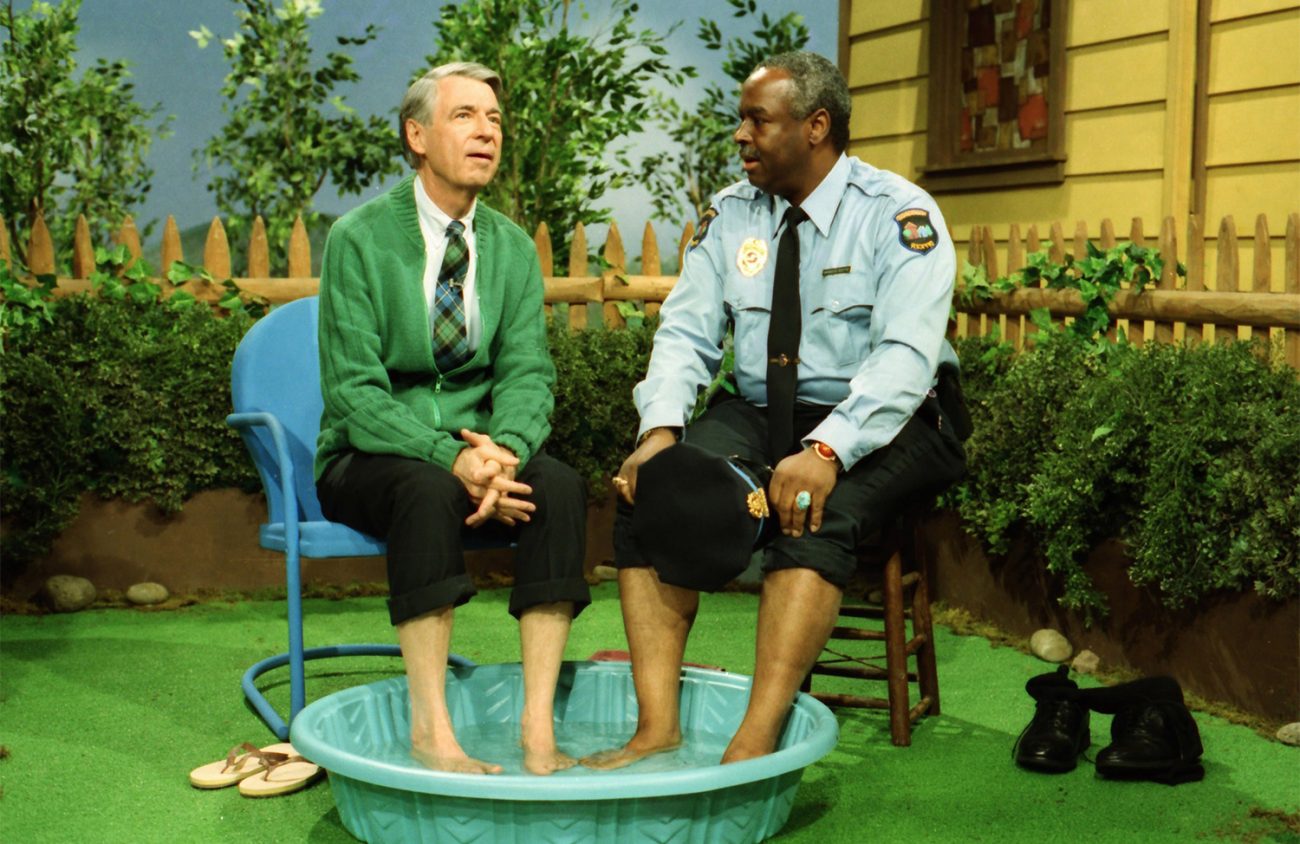If you as a child had even a passing familiarity with Mister Rogers’ Neighborhood, you don’t need anyone to tell you to hop the trolley to the Neighborhood of Make-Believe — or rather, to get yourself to a theater to see Morgan Neville’s new documentary, Won’t You Be My Neighbor?
Neville is a clear-eyed, empathetic documentarian (his 20 Feet from Stardom is a must-see), and his take on Fred Rogers is a movie we need almost as badly as some of us needed Mr. Rogers himself, back when we were small.
Part of why we need it is that as a culture, as a country, we’ve clearly forgotten the lessons Mr. Rogers taught us. Neville is too deft a filmmaker to come right out and say it, but as he explores the way Rogers taught children to grapple with their feelings, to accept other people and to accept themselves, it’s clear that what he’s showing us isn’t just a paean to the goodness of one man. It’s a reminder that being good, accepting others, being kind — these things take work. Necessary, difficult work.
The world doesn’t always reward that work, or take it seriously. For every scene in which Rogers triumphs, whether with a Senate subcommittee or a child, there’s one where his work is mocked, parodied, blamed for an entire generation’s supposed problem with feeling “special.” Most of the movie takes place in the middle ground, in the everyday work of being Mr. Rogers: introducing kids to difficult concepts, maintaining a numerically meaningful weight (143, code for “I love you”), or making a powerful point through the simple act of sharing a kiddie pool.
Fred Rogers wasn’t a saint. But what we see of his determination, of his drive, and of his flaws underscores the fact that being Mr. Rogers — turning that smile on every child; making space for anger and fear and self-doubt; maintaining that soothing presence — was a choice.
As many writers have observed, there’s a question implicit in Won’t You Be My Neighbor?: What would Fred Rogers, who died in 2003, make of the media-saturated, rage-filled world we live in now? Aren’t we living out the world he rejected, where everything on TV goes whiz-boom and it’s not pies hitting people in the face, but axes? What do we get from TV, if, as Rogers understood, what we see and hear on the screen becomes who we are?
I ask myself this when I watch Westworld, which would have been a better show in a pre-Game of Thrones world; when I turn off The Walking Dead; when show after show tells me that most people are terrible and will continue to be so. But there are glimpses of something else, even now. In the season finale of The Expanse, a show that’s as much about humanity’s failings as anything, a pastor named Anna finds herself unable to care about someone. It rattles her. “I try to care about everyone,” she says. “It’s exhausting.”
Anna is no Mr. Rogers — except there she is, in the future, trying to care about everyone, and winding up broadcasting a message of peace and hope to a very rattled world. I’ve been thinking about her constantly. The work of caring, of not giving in to cynicism, is exhausting. But think of Mr. Rogers, and keep doing it.
